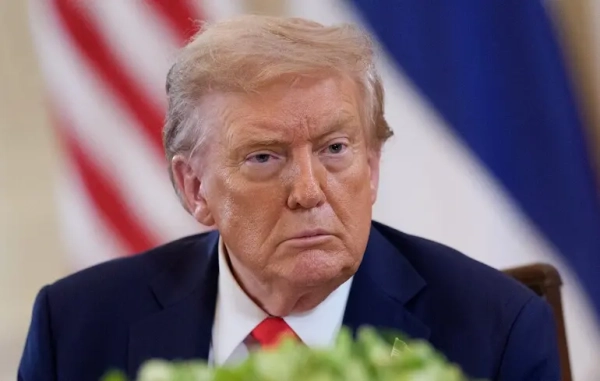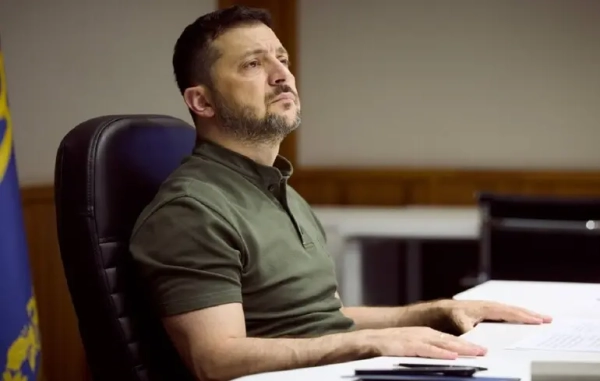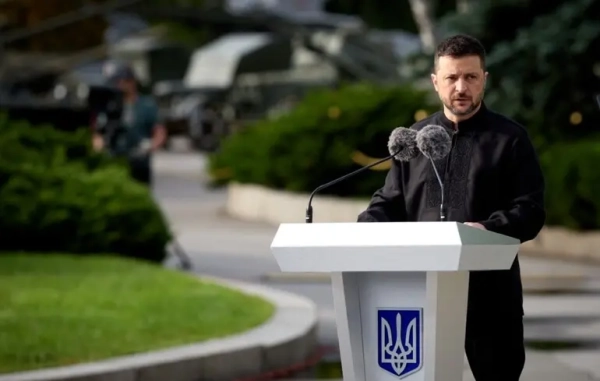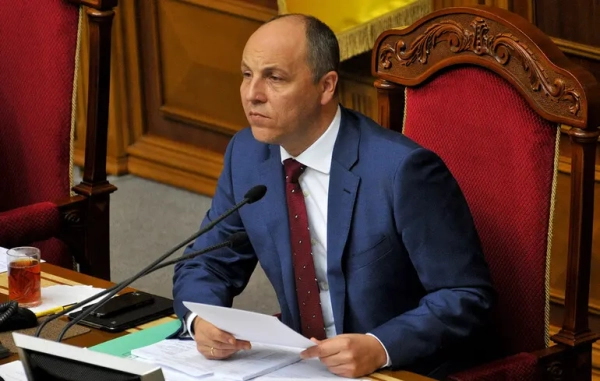
© EPA/AARON SCHWARTZ / POOL A just peace for Ukraine is still far away.
Recent weeks have seen a flurry of activity, billed as progress in the peace process between Russia and Ukraine. But for Ukrainians, the situation remains the same: their cities are still being bombed, their houses are still burning, and people are still dying. Against this backdrop, Russian leader Vladimir Putin seemed perfectly content with the privileges and attention he receives from the US president.
Donald Trump, who has declared himself a mediator in the war, has almost exhausted his arsenal of contradictory statements. One day he claims that only he can end the war, the next he says that peace negotiations should be left to the two sides.
Sometimes he boasts that Putin “respects” him, and sometimes he criticizes him for “going completely crazy.” Trump has vacillated this month between involving American troops and refusing to do so, and is now reportedly considering involving U.S. private military companies, notes Olga Chyzh, an associate professor of political science at the University of Toronto.
For those watching this—whether in Kyiv, Moscow, Washington, or elsewhere—the effect is stunning. The politics of improvisation is not a strategy. And in a war where lives depend on the reliability of U.S. commitments, unpredictability is not a strength. It is an abdication of responsibility.
So what is Trump doing, regardless of his ambitions for the Nobel Peace Prize? Has he finally realized that Putin is not interested in a deal that does not meet his maximalist goals? Or is this just another chapter in a familiar play — chasing headlines, first image, then strategy — where the costs will be borne not in Washington, but on the streets of Kyiv?
After a long period of realization, Trump may finally realize that Putin has outsmarted him—they are not the close friends he once imagined them to be. His repeated threats of new sanctions and tariffs against Russia confirm this, but at the same time, Trump has repeatedly shown a willingness to forget old grievances if Putin promises that things will be different this time.
Meanwhile, Ukraine seems to have found a workaround to get direct American military supplies, albeit at great expense. With European funding, Kyiv can continue to buy American weapons while Ukraine and the EU ramp up their own production; it’s not ideal, but it maintains the status quo: Ukraine survives, Trump gets credit for the profits from US arms sales, and Europe keeps Russia busy elsewhere.
As long as this scheme works, the war will continue: Russia will continue to advance, but it will not be able to defeat Ukraine. And in the absence of real leadership from the United States, the war will continue as long as Putin can throw his soldiers into battle.
“While Ukraine is fighting for survival, Putin is playing a completely different game. He has emerged as the unexpected winner in this chaos, having not gained an advantage at the negotiating table through combat successes, so he is relying on tools proven over decades — confusion, manipulation, and exhaustion of opponents; although Putin has not yet received everything on his wish list, he is distinguished by extraordinary patience,” says Chyzh.
Unlike democratic leaders, Putin faces no constraints—only an inner circle of military and conservative elites with an imperialist worldview. For them, Ukraine is not just another territory to be traded to boost Trump’s ego. It is the key to restoring Russia’s lost greatness.
Putin understands well that American audiences need simple and clear signals; long negotiations and confusing messages quickly tire them. Fatigue is Putin’s ally. Boredom, phone calls, visits that lead nowhere are not failures of diplomacy. They are strategy.
Once the war fades from the headlines, he hopes to strike a deal in the shadows: lifting sanctions, freezing aid to Ukraine. For Putin, every hour of confusion is an investment. The question is whether any of the negotiators have the stamina to see the deal through.
“The biggest loser in this situation, besides Ukraine, is Trump himself. Despite his public rhetoric, he risks limiting himself to a nomination for the Nobel Peace Prize, although he has a chance for much more – by implementing a clear policy of ending the war, he could get his “Reagan moment”, becoming a hero for the Western world,” the associate professor adds.
Trump is right that Joe Biden has been too cautious to claim the role of “decisive player” in the war. Trump, on the other hand, could do so because, while Putin’s respect for him personally is questionable, the Russian leader respects U.S. military power, and the options for pressure—from the bipartisan Graham-Blumenthal Russia sanctions bill to expanded air support and increased direct military aid—are quite real.
“Like any autocrat, Putin can be forced to make concessions. Biden did not dare to do this, and Trump, with his unpredictability, can force Putin to retreat and end the war, gaining the glory of an unexpected hero. If he allows Moscow to dictate the terms, history will remember him as a president who helped Russia restore its imperial ambitions, while at the same time reinforcing the decline of American influence,” Chyzh concluded.
Recall that US President Donald Trump, in an interview with the Daily Caller, again compared Ukraine and Russia to fighting children. The American president added that the US, Ukraine, and Russia could meet immediately in a trilateral format — bypassing the meeting between Putin and Zelensky, which he himself initiated.






